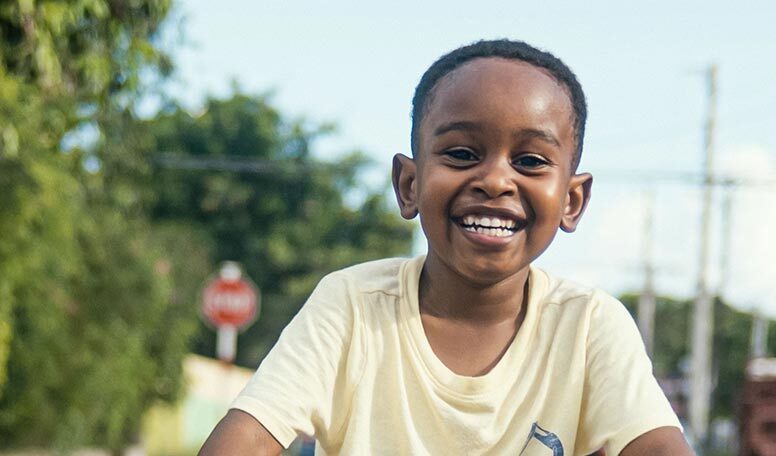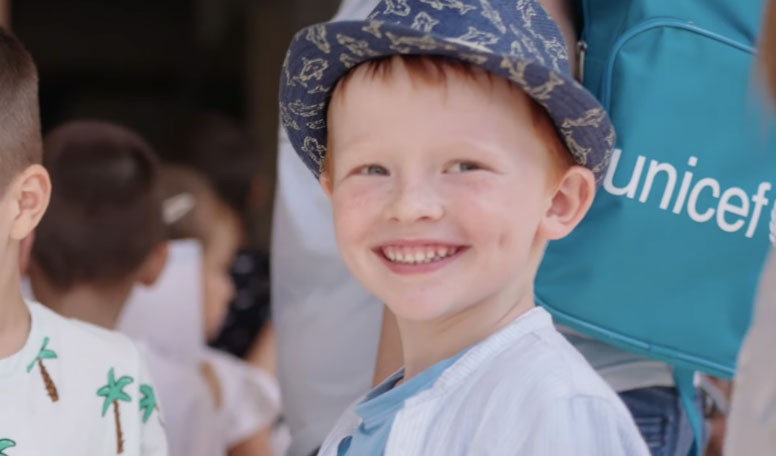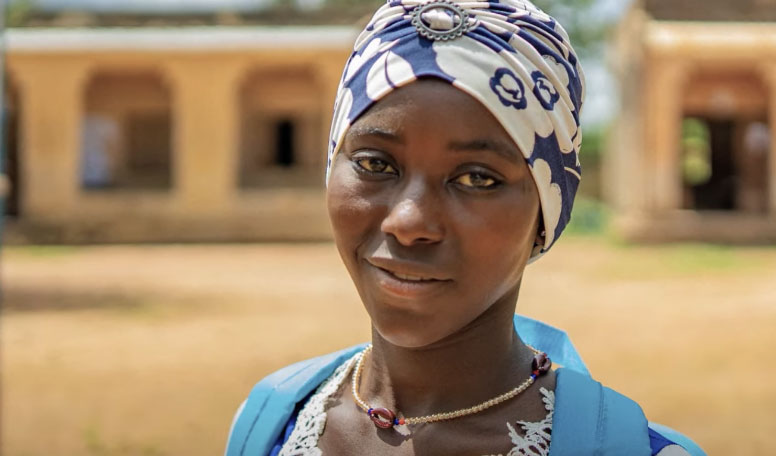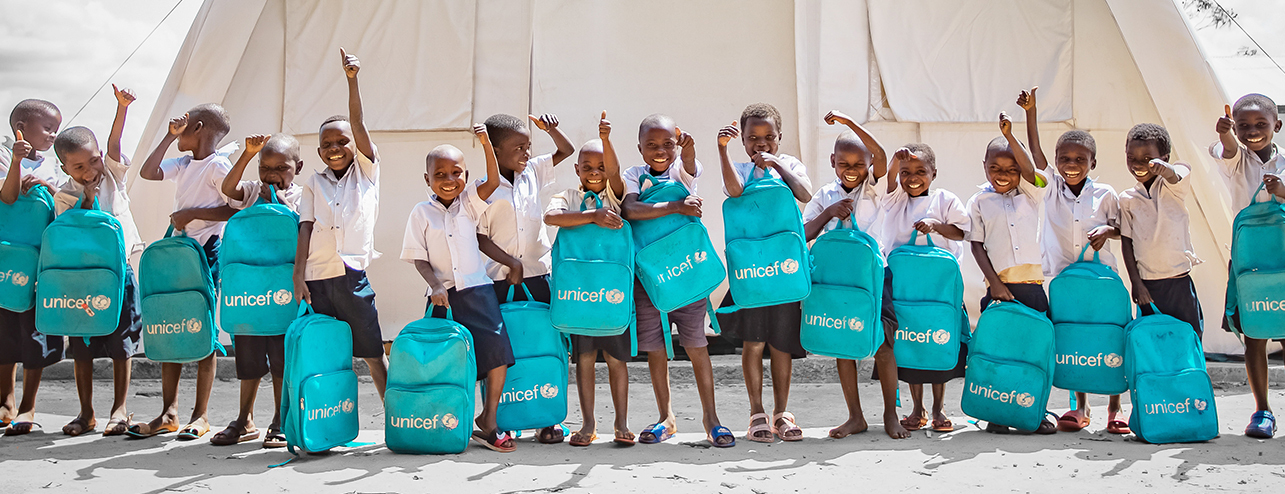We are all UNICEF
Building happier, healthier, safer lives for children takes all of us. Working together. Insisting on hope. Never giving up.
Meet Children Receiving Help from UNICEF
Title: A Story of Inclusivity from Jamaica
Open a young Jamaican boy, sitting in a classroom, dressed in a school uniform, speaking to the camera in sign language.
Ari (in sign language): My name is Ari Jones. I am six years old. And I go to Danny Williams School for the Deaf.
Cut to Rebecca Tortello, a representative from UNICEF Jamaica, in her office, speaking to the camera. Interspersed are scenes of young students in school, watching digital books on tablets and laptops.
Rebecca: The Accessible Digital Textbook Project, which is a partnership between UNICEF, the Ministry of Education, specifically the Special Education Unit and Book Fusion, aims to harness the power of technology, innovations in technology that can increase the inclusivity, the ways in which learners with and without disabilities are able to engage meaningfully with content at home, at school and in their communities.
Ari’s teacher, Patrice Matthison, stands in front of the classroom and signs to the children.
Patrice: The title of this story is “My Brain is My Boss.”
Back in his interview, Ari signs proudly: I read all about my brain being my boss!
Patrice sits with Ari in the classroom as Ari looks at his digital book.
Patrice: So you like the activities? Is that your favorite part?
Ari: Yes!
Patrice speaks to camera in an interview: All of the concepts and the content of the book, all of the concepts are there, and everything that he needs to know that's in the story is actually done in his language. So, it's definitely a plus for Ari.
Ari in his interview: This is my first time reading a book that has sign language. I was able to hear the speech on the tablet! I am happy that I can share this book with my friend Ma’Kayla, and she's able to hear.
Footage of Ari playing at home, riding a bicycle and sitting with his family.
In an interview, Stacy-Ann, who is Ari’s mother says: With Ari, that's when I realized that we do not include a lot of our society. They are left to the side and we just, I guess, live our lives not even thinking about them, because I did not know a deaf person or a hard of hearing person before Ari.
It made me realize that I should try my best to include more people in the things that I'm doing.
With scenes of Ari smiling and dancing with his classmates, Stacy-Ann continues:
Being left behind is total sadness. You don't want to be left behind. Even as hearing groups, even if all of us here we are hearing and somebody is leaving you behind, you're going to feel sad. So everybody wants happiness. Everybody wants to move forward and be happy together.
Cut to an end card with a photo of Ari smiling on his bicycle.
The card reads: UNICEF won’t stop working for every child. Learn more at unicefusa.org
Title: A Home Away from Home in Romania
A door opens and a young red-headed boy greets the camera, arms wide.
Andrei: Welcome to visit us!
Andrei sits on a purple couch with his stuffed animals. An on-screen title says the Andrei is a Ukrainian refugee.
Andrei: Hello, everyone. My name is Andrei, and I am six years old. I am living in Romania. I really like Romania.
Andrei sits at a kitchen table with his extended family, smiling and having fun.
Andrei, speaking to the interviewer: I came here with my grandma, aunt and two cousins.
He walks down a hallway to a room where other children play.
Andrei: This room is where I play with my friends. These are my friends. This friend is from Romania, and this is Alisa.
He goes to school and enters his classroom, wearing a blue porkpie hat. He embraces a friend warmly.
Andrei: I met Alex at a Romanian school, where I learn the Romanian language, and he helps me a lot. He's a cool friend.
He plays in the playground at recess with other schoolchildren.
Andrei: I go to the upper school class. Oh, not the upper school, but the upper pre-school. In the kindergarten, I like to play with friends – LEGOs, drawing, writing and playing sports.
In the classroom, he rides on the shoulders of his teacher as she teaches.
Andrei: And there are very good teachers, Mrs. Tanya and Mrs. Larisa.
Back at home, in his room, Andrei speaks to his mother back in Ukraine on a cellphone. Due to her job, she was unable to leave with Andrei.
Andrei: Mommy, how are you doing?
Olya: My boy, I'm fine. - And how are you doing?
Andrei: I came back from kindergarten.
Olya: So, what did you do in kindergarten?
Andrei: Played and went to a Romanian school.
Olya: Son, do you like it?
Andrei: Yes. I miss you very much.
Olya: And I miss you very much. I love you very much.
Andrei: I love you, too.
He shows her on video that his friends are visiting.
Andrei: I have friends visiting.
Andrei’s friends wave to the phone: Hello, Olya!
Olya: You are playing, right?
Andrei: Yes, we are playing! They are from the Romanian school.
Olya: I understand.
Andrei blows her a kiss: Bye
Olya: Are you playing with them, son?
Andrei, blowing kisses again: Yes. Bye.
Olya: Bye-bye.
A super appears on-screen. It reads: UNICEF works to help two million children from Ukraine adapt to new lives far away from war.
Cut to an end card with a photo of Andrei smiling at his schooldesk.
The card reads: UNICEF won’t stop working for every child. Learn more at unicefusa.org
Title: A Girl’s Dream to Give Back in Mali
A 12-year-old girl, dressed in a headwrap and lace dress, waves hello.
Safiatou: My name is Safiatou Samaké. I'm from N'Djila, and I go to school in Foulaboula. I'm 12 years old and I am in 6th grade.
Her rural village has cement-block buildings and mud huts, surrounded by farm fields. She does chores, reads a book and dances with friends, all outdoors.
Safiatou: I've lived with my grandparents since I was a child. When I wake up in the morning, I wash up, fetch water and sweep the courtyard at the house.
Inside a dark home, Safiatou watches her grandmother cook over a fire.
Safiatou: My grandmother makes breakfast for me to take to school.
She walks through the fields with her friends, all carrying UNICEF backpacks.
Safiatou: We walk to school. The distance between my home and the school is three kilometers. My friends and I would like to have a means of transportation to get to school. Even better, it would be wonderful to have a school where we live.
In the school compound, the girls enter the classroom and begin their studies.
Safiatou: Once we're there, if it's our turn to sweep the classroom, we do it. Then we start lessons. I like the quick learning methods, because students learn while having fun. That's why I sought to get into this school.
She listens intently in class, asks questions, and reads from the blackboard.
Safiatou: I really love grammar and conjugations, biology... When it comes time to read our compositions, I learn a lot, which is a pleasure for me. At recess, we buy sweets and play ball.
She poses with her friends from school, then studies on her own at home.
Safiatou: On the way home, we have fun. When we get home in the evening, we light a fire to heat the water, and we help with the housework. I like studying to leave ignorance behind and take part in my country's development. After my studies, I'm planning to become a doctor so that I can care for people.
Safiatou smiles and waves goodbye: Goodbye, thank you!
Cut to an end card with a photo of Safiatou in front of her school.
The card reads: UNICEF won’t stop working for every child. Learn more at unicefusa.org
What Can You Do? Lots!
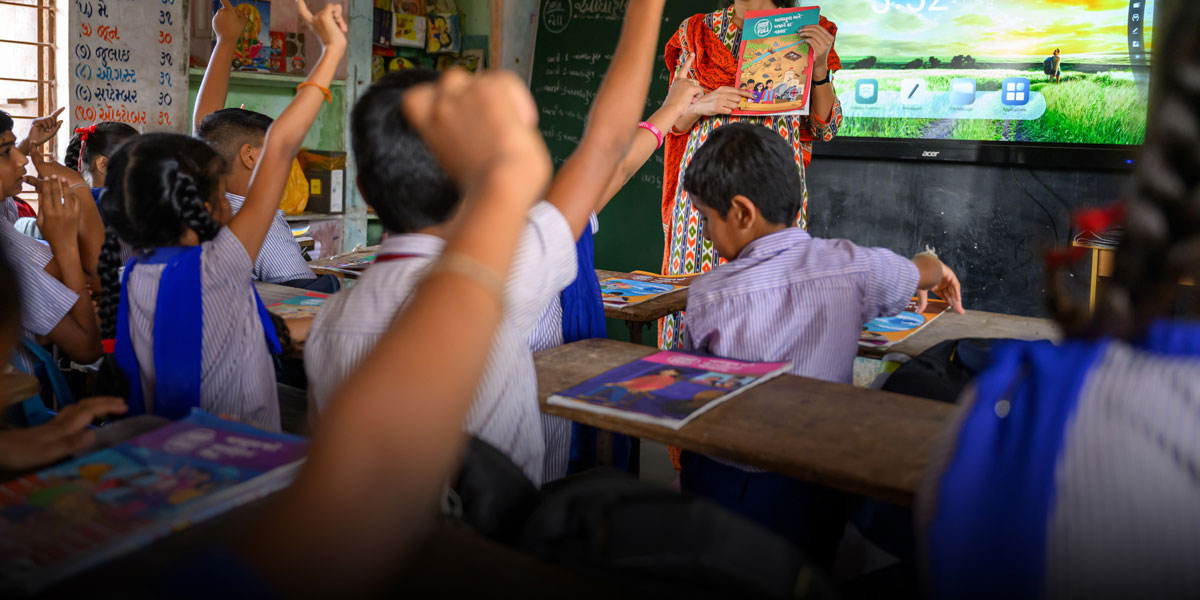
Support Youth Mental Health
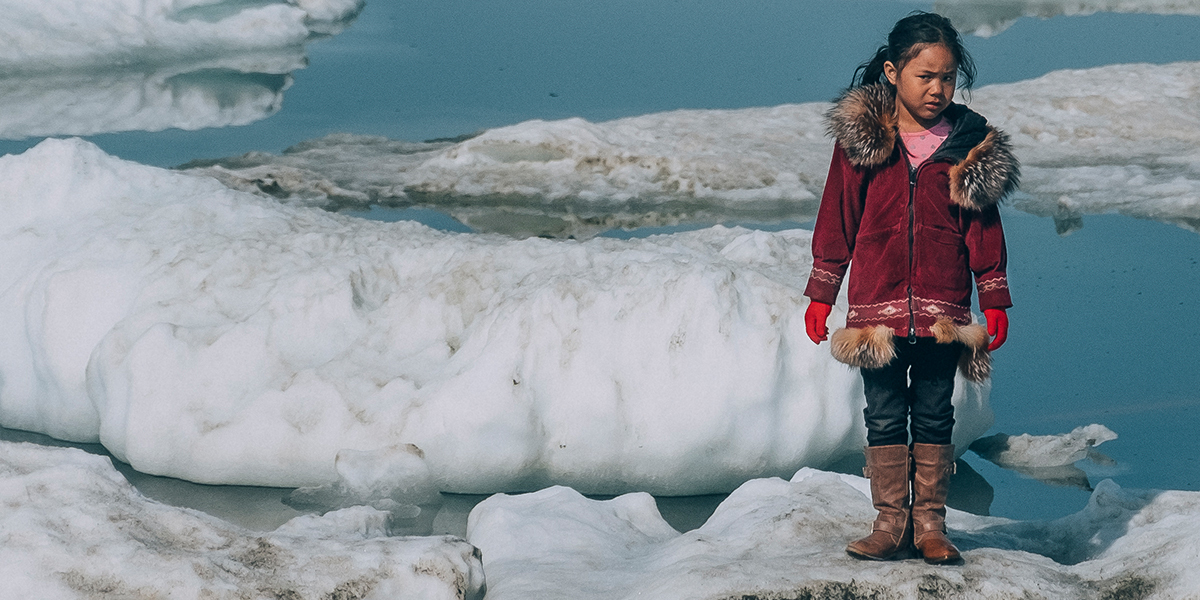
Protect Kids from Climate Change
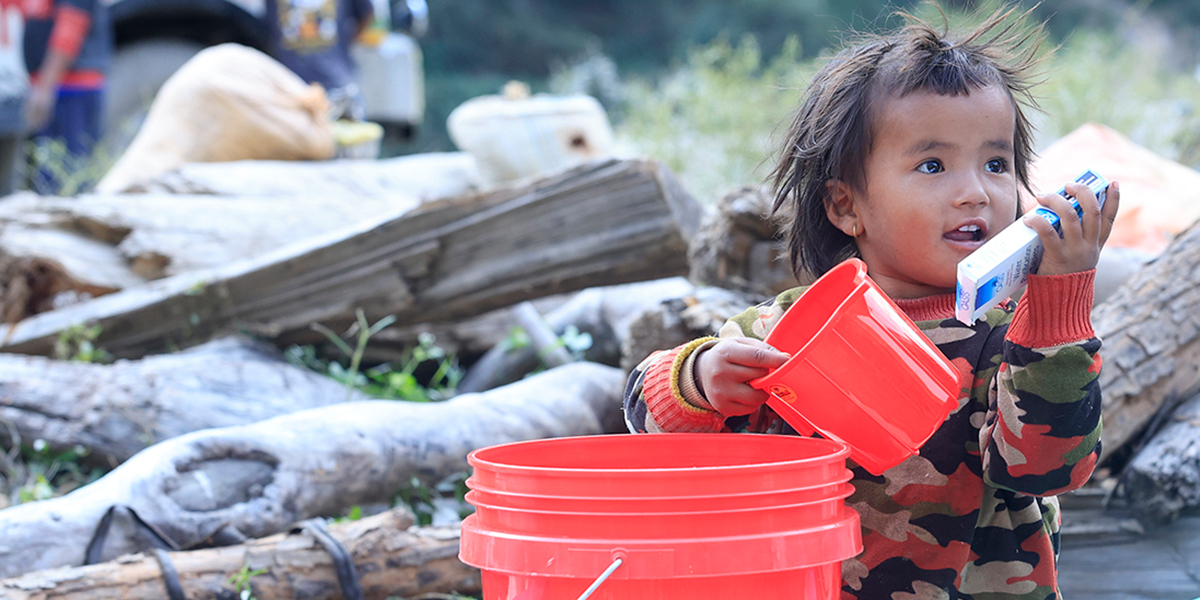
Dedicate a Gift to a Loved One
Stay Connected
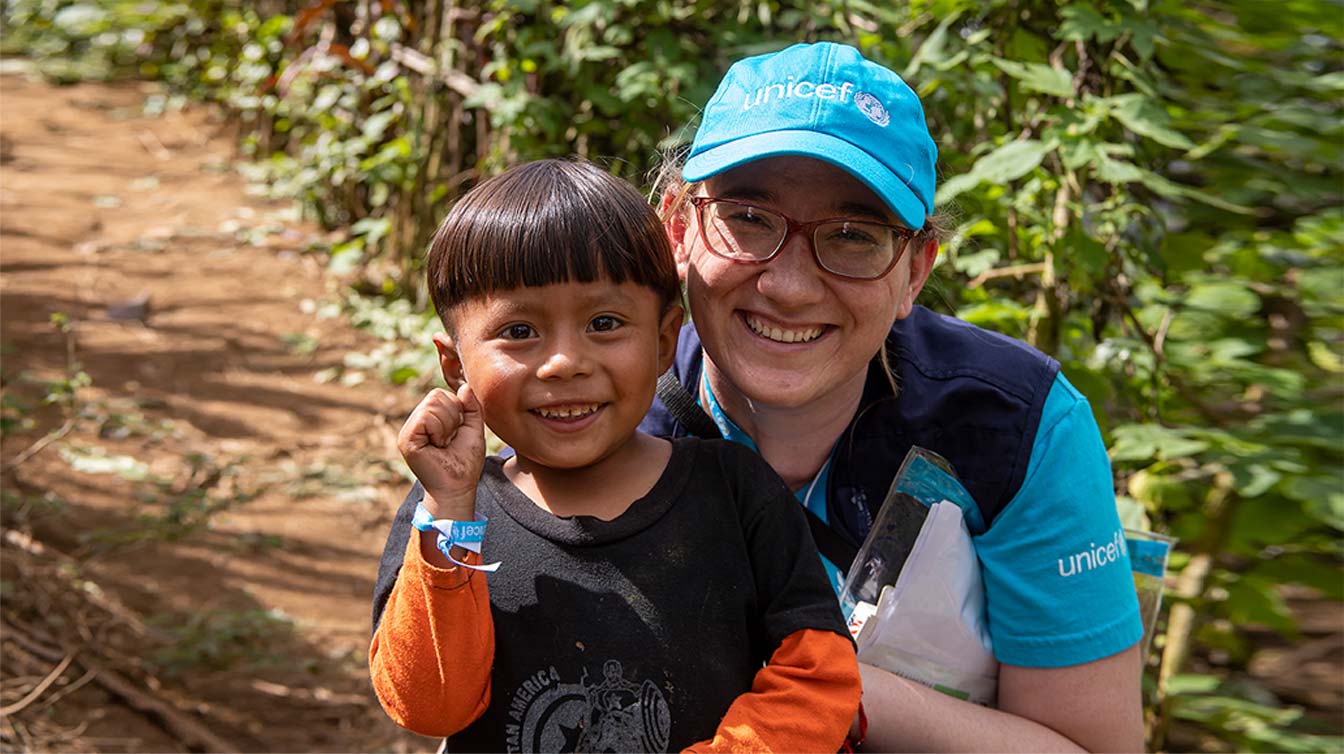
Why UNICEF?
Over eight decades the United Nations Children's Fund (UNICEF) has built an unprecedented global support system for the world's children. UNICEF relentlessly works day in and day out to deliver the essentials that give every child an equitable chance in life: health care, safe water and sanitation, nutrition, education, emergency relief and more. UNICEF USA advances the global mission of UNICEF by rallying the American public to support the world's most vulnerable children. Together, we have saved and meaningfully improved more children's lives than any other humanitarian organization.
For more information, visit unicefusa.org.
By attending, I agree to be bound by the terms of UNICEF USA's Child Safeguarding and Participation Policy, Diversity, Racial Equity & Belonging Commitment and Photo Release Policy.
